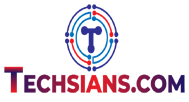Natural language processing, which is commoly also known as NLP, refers to a computers’ ability to grasp the most recent human speech words and text. It is currently employed in modern technology to support privacy of spam email, personal voice assistants, and language translation programs.
The integration of natural language processing in the medical industry has drastically risen, owing to its potential to detect, thoroughly analyze and understand massive volumes of client or patient data.
Using advanced algorithms and machine learning, NLP technology has the capability to leverage relevant and important insights and ideas that were previously buried as unprocessed data.
NLP in medicinal media can manage unorganised data of the industry, providing accurate insight into comprehension of quality, improvement of medical measures, and providing the best possible results for patients. If you have ever wanted to know more about what natural language processing is and how it can be an asset, read on.
What is NLP & How Does It Work?
What is Natural Language Processing and why does it matter to the healthcare industry? In simple terms, Natural language processing is a subset of artificial intelligence that allows computers to comprehend and interpret human speech.
The way it works is as follows: NLP algorithms pre-process data by organizing the dataset. This simply entails placing the data into a more logical manner – for example, tokenization, which includes breaking down words into smaller semantic components, or “tokens.” Pre-processing makes the dataset easier to analyze for the NLP system.
From this junction, the system implements algorithms to the organized text for the computer to interpret it. The two primary algorithms used in this technology are rule-based systems, which can understand text-based grammatical rules; and machine learning models, which make use of statistical methods to improve learning over time.
How Can NLP Support the Healthcare Industry?
There are no limits to how NLP can be beneficial in supporting the healthcare industry, but here are three primary use cases being used today:
Improving Clinical Documentation:
Rather than wasting significant time manually examining complex EHR, NLP extracts critical data from EHR at the point of care using speech-to-text dictation and structured data entry. This not only allows clinicians to concentrate on delivering patients with the necessary care, but it also guarantees that clinical documentation is precise and up to date.
Accelerating Clinical Trial Matching:
Using natural language processing (NLP), healthcare providers may automatically examine enormous amounts of unstructured clinical and patient information to track qualified candidates for clinical trials. This not only allows patients to receive experimental care that could significantly improve their condition but also promotes medical innovation.Read more about tamilmv
Supporting Clinical Decisions:
NLP enables doctors with fast, easy, and precise access to health-related information at the moment they need it, promoting them to make informed decisions in emergencies.More info click here f95zone
Eventually, the technology and tools it possesses can help bridge the gap between the massive amounts of data generated and the limited cognitive capacity of humans. The key to this is by developing accurate, intelligent, and self-sufficient algorithms, specific to healthcare.
If you’re no longer wondering about what natural language processing is or how effective it can be in healthcare, you can check more use cases that can help revolutionize the healthcare industry! visit here tamilmv

